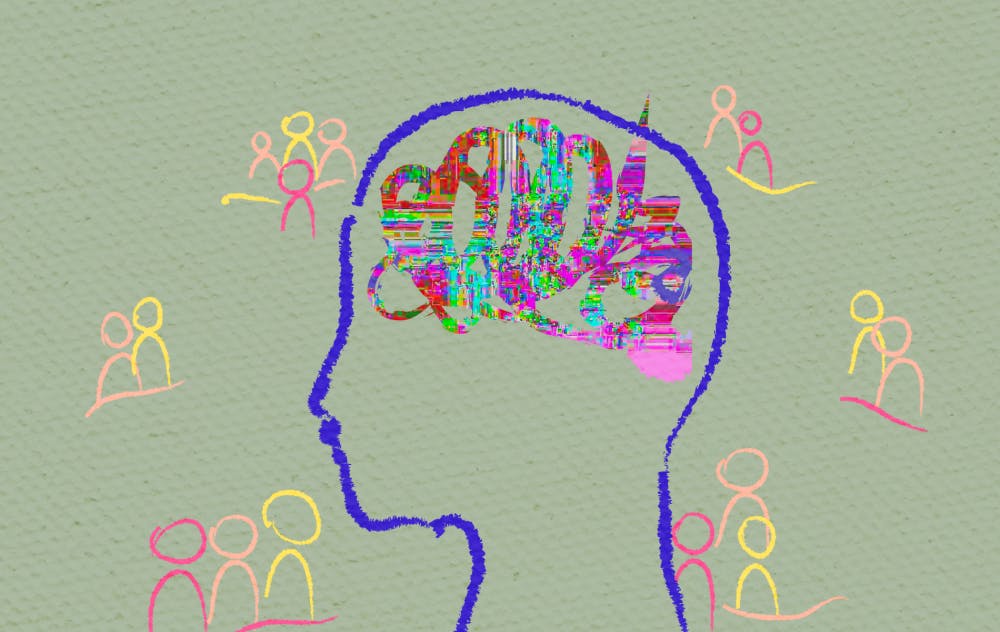
My first year at Penn, I noticed many flaws in the mental health system here at Penn — all flaws that initially hindered me from getting proper and necessary treatment. Many other Penn students have had similar experiences, alleging various flaws in our mental healthcare system. We often address the stigma around mental health and share mental health resources in an effort to combat this. While this is helpful, it is by no means the complete solution. We should also discuss and explore concrete, specific ways we can improve Penn’s overall mental health system. Simply stating the flaws is not enough; we must target and pinpoint concrete solutions if we seek any form of progress.
First, we ought to recognize that specific mental health conditions merit specific solutions. According to their own staff directory, none of Penn's Counseling and Psychological Services psychologists or social workers specialize in obsessive-compulsive disorder. Yet this condition is one of the most common mental health illnesses, especially affecting students our age. It is imperative that at least one CAPS clinician, if not more, is qualified and trained to deal with the condition to a considerable extent. CAPS should therefore seek out clinicians who specialize in this particular condition or hire clinicians who are experienced in a greater range of disorders and specialties.
I have personal experience with this problem. A year ago, a social worker at CAPS told me that my Obsessive-Compulsive Disorder thoughts and obsessions were “just weird,” and she proceeded to give me a strange, judgmental look. Even for non-professionals, it is common sense that that’s not something someone with OCD wants to hear. Nobody wants to be reminded of the abnormality of their condition. Moreover, I have often heard from peers that the advice offered by CAPS clinicians are “too general” and not geared toward a specific problem or specific treatment plan. Specializing in OCD, or any other condition for that matter, does not necessarily require extensive knowledge of exposure and response prevention or cognitive-behavioral therapy. However, at the very least, some of the staff should actually have experience with OCD patients (most clinicians I spoke with lacked any sort of experience), along with a comprehensive understanding of targeted treatment plans and mindfulness techniques.

CAPS often neglects to follow-up or check on students who have been referred to outside providers.
Additionally, many students, like myself, have affirmed that CAPS seems to lack a sufficient degree of continuity of care. While CAPS is not meant to be a long-term provider, they often neglect to follow-up or check on students who have been referred to outside providers. Personally, the last I heard from CAPS after my referral process was an impersonal email from the CAPS referral coordinator, stating that she would “appreciate my feedback” if I responded to her provided list of just three quick questions. It is absolutely necessary that CAPS schedules follow-up, in-person appointments with students once they have been referred. Just because a student is on a waiting list or already receiving formal treatment by no means signifies that he or she is in good hands yet. People are especially vulnerable during this time period; treatment does not necessarily work for everyone and is undoubtedly a stressful, overwhelming time. Sure, CAPS clinicians have many students to see – but an impersonal follow-up email is simply not enough.
Having concrete solutions to our mental health crises can be supplemented by encouraging people to seek treatment in the first place. In my previous piece, I addressed and analyzed the stigma around taking a leave of absence. On that note, we can begin to resolve this issue with a more organized leave of absence process and a smoother transition back to full-time studies. For instance, transfer students at Penn have peer mentors (usually these are students who also transferred to Penn), a Facebook group, and a “transfer student organization” (which hosts formals and other social events). Such groups and opportunities have certainly improved the stigma around transferring to a new and unfamiliar university, but returning students also struggle with adjusting to a fast-paced environment like Penn and certainly deserve the same opportunities as well.
Mental health is a journey, and it is rarely, if ever, a linear one. And just like mental health itself, progress in improving mental health is a rocky journey that invariably includes bumps along the road. In light of recent tragedy, it is of the utmost importance that we adamantly prioritize our mental health system by pinpointing its specific flaws and forming concrete solutions, rather than merely stating the obvious – that Penn’s mental health system has much room for improvement.

BRIDGET YU is a College sophomore from Los Angeles, CA studying Psychology. She plans to attend medical school and specialize in psychiatry. Her email address is bridgtyu@sas.upenn.edu.
The Daily Pennsylvanian is an independent, student-run newspaper. Please consider making a donation to support the coverage that shapes the University. Your generosity ensures a future of strong journalism at Penn.
Donate







